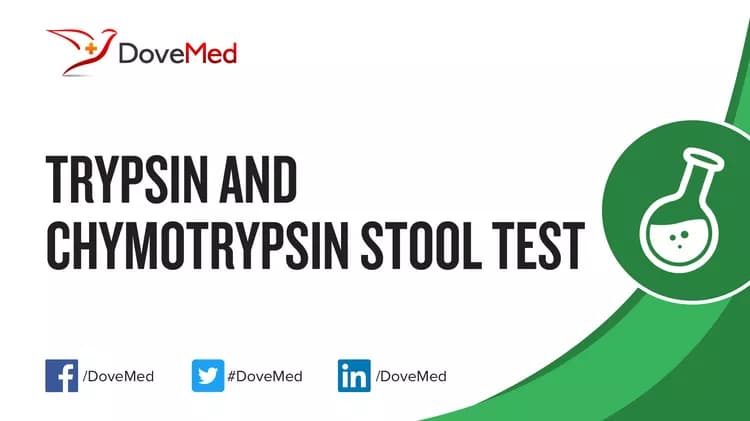What are the other Names for this Test? (Equivalent Terms)
- Chymotrypsin and Trypsin Stool Test
What is Trypsin and Chymotrypsin Stool Test? (Background Information)
- Trypsin and chymotrypsin are digestive proteases, enzymes that breakdown proteins into smaller fragments. They perform their function in the duodenum of the small intestine
- Trypsin and chymotrypsin are made in the pancreas in their inactive, or zymogen, form. This is to ensure that these protein-cleaving enzymes safely make it to the duodenum, without causing damage to the body. Upon reaching the duodenum, trypsinogen and chymotrypsinogen (the inactive forms), are activated to trypsin and chymotrypsin, respectively
- They then begin breaking-down proteins into smaller fragments usable by the body. Trypsin and chymotrypsin travel along the digestive tract and are excreted along with feces
- The Trypsin and Trypsinogen Stool Tests are tests that detect levels of trypsin and trypsinogen. They help diagnose cystic fibrosis, pancreatic disorders, and malnutrition
What are the Clinical Indications for performing the Trypsin and Chymotrypsin Stool Test?
Following are the clinical indications for performing a Trypsin and Chymotrypsin Stool Test:
- Excessively salty sweat
- Progressive weight loss
- Vitamin deficiency
- Persistent diarrhea
- Passing of bulky, greasy stools with a foul-smelling odor
- Fatigue
- Low blood pressure
- Frequent coughing
- Infertility
- Frequent sinus infections
How is the Specimen Collected for Trypsin and Chymotrypsin Stool Test?
Following is the specimen collection process for Trypsin and Chymotrypsin Stool Test:
Sample required: Stool
Process: Defecation into a sterile container, avoiding any contamination with urine or toilet paper.
Preparation required: No special preparation is needed prior to the test.
What is the Significance of the Trypsin and Chymotrypsin Stool Test Result?
Decreased trypsin and chymotrypsin levels may indicate:
- Underproduction, due to malnutrition
- Cystic fibrosis
- Pancreatic disorder, or pancreas affected by cystic fibrosis
The laboratory test results are NOT to be interpreted as results of a "stand-alone" test. The test results have to be interpreted after correlating with suitable clinical findings and additional supplemental tests/information. Your healthcare providers will explain the meaning of your tests results, based on the overall clinical scenario.
Additional and Relevant Useful Information:
- The Trypsin and Chymotrypsin Stool Test is often performed alongside a fecal fat test and a trypsinogen test, to better assess one’s pancreatic health
Certain medications that you may be currently taking may influence the outcome of the test. Hence, it is important to inform your healthcare provider, the complete list of medications (including any herbal supplements) you are currently taking. This will help the healthcare provider interpret your test results more accurately and avoid unnecessary chances of a misdiagnosis.
Related Articles
Test Your Knowledge
Asked by users
Related Centers
Related Specialties
Related Physicians
Related Procedures
Related Resources
Join DoveHubs
and connect with fellow professionals


0 Comments
Please log in to post a comment.